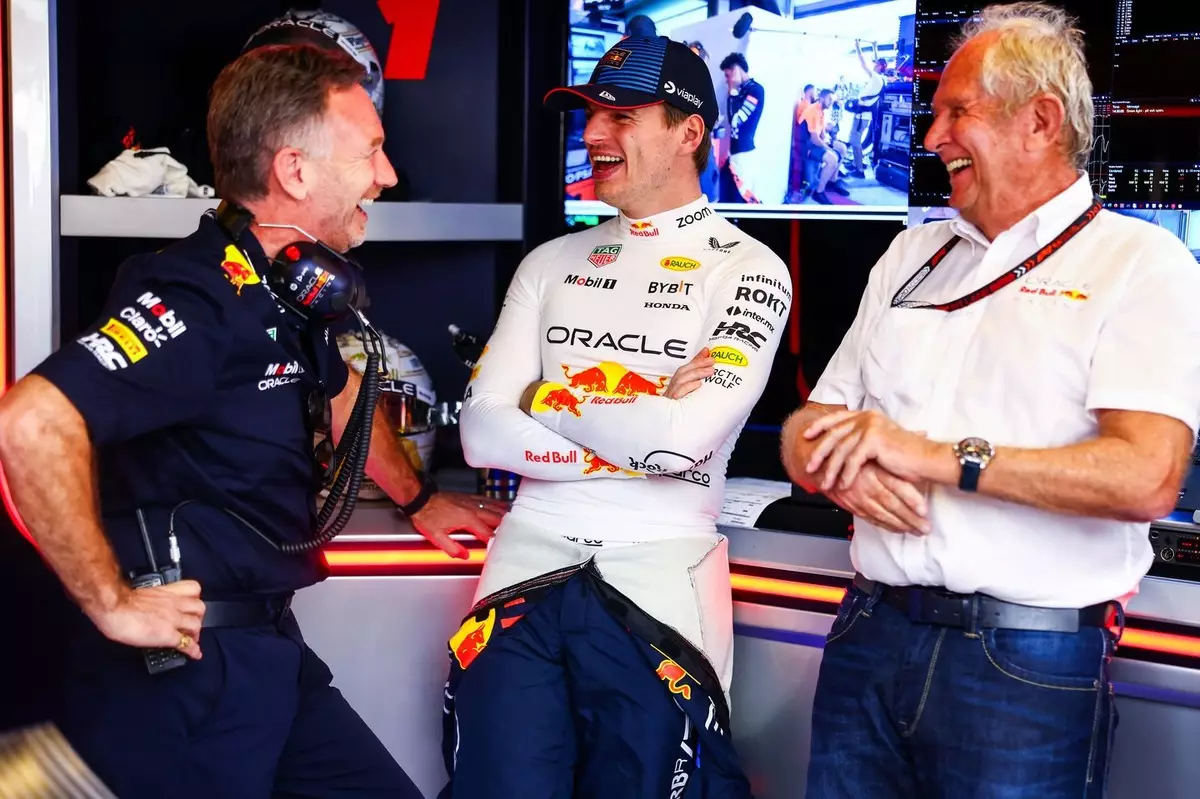The world of Formula 1 is notoriously tumultuous, characterized by high-stakes competition and intense scrutiny both on and off the track. Recently, one of the most talked-about narratives has revolved around Red Bull Racing’s star driver, Max Verstappen, and team principal Christian Horner. Amidst a backdrop of speculation regarding Verstappen’s commitment to the team during a turbulent past season, Horner has reaffirmed the Dutchman’s loyalty, stating that his dedication has always been unwavering. This article aims to dissect these dynamics, analyze the implications of team loyalty, and forecast what it means for the future of Red Bull Racing.
Last season witnessed significant challenges for Red Bull Racing, including mechanical issues with their car and internal power struggles that raised eyebrows within the pits. Amid these swirling clouds of uncertainty, Verstappen’s future became a hot topic, particularly after rival team principal Toto Wolff of Mercedes appeared to court him as whispers grew surrounding Lewis Hamilton’s potential exit to Ferrari. Given Verstappen’s towering success—which includes four world championships—it’s no wonder that his future is a consideration for many teams.
Horner has addressed these rumors, indicating that Verstappen has consistently communicated his commitment to Red Bull. This level of transparency is essential in high-pressure environments like Formula 1, where the jockeying for talent can lead to distractions and reduce focus on performance. Verstappen’s agreement with Red Bull runs until 2028, casting doubt on any immediate shifts in allegiances, but the whispers of discontent and speculative discourse reveal the volatile nature of relationships in the sport.
Verstappen’s relationship with Red Bull showcases the delicate balance of loyalty and ambition in Formula 1. Team loyalty often operates on a spectrum defined by success, respect, and the integrity of relationships. In Verstappen’s case, his acknowledgment of team stakeholders like Helmut Marko highlights the importance of trusted personnel within the competitive landscape. Horner’s assertion that Verstappen’s engagement hinges on an enjoyable racing climate and competitive performance speaks volumes about what drives elite athletes.
The pressures of the sport mean that even the tiniest misalignment can lead to speculation about a driver’s commitment. For Verstappen, this past season offered ample opportunity to evaluate whether Red Bull could meet his expectations—or if greener pastures awaited him elsewhere. However, as Horner rightly points out, not only is Verstappen’s talent coveted, but his loyalty to the team and its culture has proven to be a cornerstone of their success.
The turmoil that engulfed Red Bull Racing, partly stemming from allegations against Horner and resulting speculation about his role, presents an opportunity to explore effective leadership in high-stress environments. Horner’s ability to compartmentalize external noise and focus on performance illustrates a critical trait of successful team leadership: the capacity to insulate team members from distractions. His assertion that, upon entering the garage, business resumes as usual is essential for fostering a stable working environment.
The duality of Horner’s role—as both the team principal and the chief executive officer of several technology businesses—illustrates the multifaceted nature of leadership in Formula 1. His diverse responsibilities necessitate a nuanced approach, where emotional intelligence and decisiveness are key.
As Formula 1 enthusiasts watch closely, the narrative surrounding Red Bull Racing poses important questions about the balance of ambition and loyalty within the sport. Given Verstappen’s established commitment to the team, and Horner’s ongoing reassurance regarding team dynamics, the foundation for effective collaboration is in place. Both figures seem to prioritize the performance of their cars and the strength of their relationships, essential for navigating the choppy waters of Formula 1.
The internal dynamics of Red Bull Racing not only provide an intriguing subplot for fans but also set the stage for potential future successes. The race to maintain a winning formula is undoubtedly a long one, but with continued communication and strategic management, Red Bull can strive for greatness while cementing the loyalty of its star driver. Looking forward, the resilience displayed by both Verstappen and Horner may serve as a blueprint for success, potentially warding off the specter of discontent that can plague any team racing at this level.

